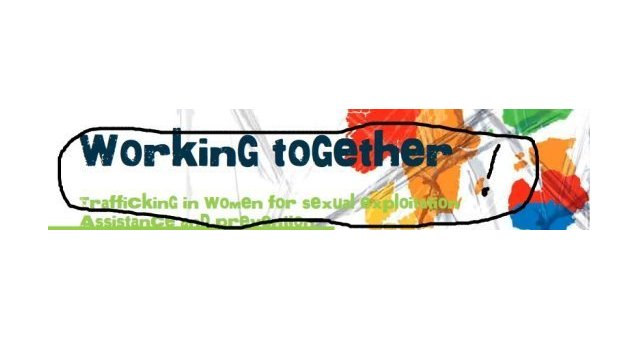#20yrsEndDemand with Colette De Troy

In summer 1998 the General Assembly of the European Women’s Lobby passed a landmark motion, where we affirmed that “prostitution and trafficking in women constitute a fundamental violation of women’s human rights”. Since that time, we have continued to assert that no woman should be faced with such a lack of financial choice that she must risk her safety, wellbeing and long-term health for survival. To mark this 20 years of an abolitionist stance on prostitution, we are highlighting the actions of our movement at international and national levels, including our secretariat, members, and former colleagues who played key roles in our campaigning. Follow #20yrsEndDemand online and join the conversation.
“Please come to Vienna, we need the EWL to counter the sex industry seriously lobbying the UN”. This was the emergency call I received one day in 1999 from the Coalition Against Trafficking in Women (CATW). The UN agency on organised crime, based in Vienna, was starting then its work on the protocol on trafficking. And indeed, when I came there for the next session, I discovered how well organised was “the other side”, i.e. the pro-prostitution group, working closely with countries countries that had legalised/regulated prostitution as labour, like Australia, the Netherlands, Germany.
Meeting the power of the sex-industry lobby group including well paid and supported NGOs, made me realising the harsh reality of this economic market. During the numerous sessions in Vienna, the battle was hard and the international Human Rights Network we formed with women’s NGOs, including many EWL members active at national level, was instrumental to finally get a definition of trafficking that protected all victims of trafficking, not just those who could prove they had been forced.
Meeting survivors of prostitution was another driving force. Their strength, their resilience and courage, their words to describe their personal experience of sexual exploitation were amazing. We started working with survivors early in the years 2000 and we produced the film Not For Sale, by Marie Vermeiren, giving voice to some of them. Since then, they have been able to organise and are now essential actors to speak loud in the debate.
And finally, what kept me working on this issue was the power of collective action. Meeting fantastic activists, colleagues, dedicated experts of the EWL Observatory on violence against women, involved MEPs and civil servants has been incredibly supportive. I have measured how important it was to participate in public debates for the EWL having a strong abolitionist position, stating clearly that prostitution is a form of gendered violence and that sex market is based on inequality of women-men.
This was further confirmed when the EU and the EWL expanded. When new member states joined the EWL, they rapidly became major actors in their countries and instrumental in the EWL projects. This was the case for example with the Nordic-Baltic Pilot project or the Network against trafficking in the Balkans. Promoting the Swedish model and denouncing the myths attached to prostitution has been a collective work for EWL members at all levels. At a time of #MeToo, let’s hope the links between prostitution and inequality, between sexual exploitation and patriarchy, will bring together more champions to challenge the “oldest oppression”.
Colette De Troy worked for 17 years at the European Women’s Lobby, among others in the capacity of Director of the Observatory on Violence against Women.




